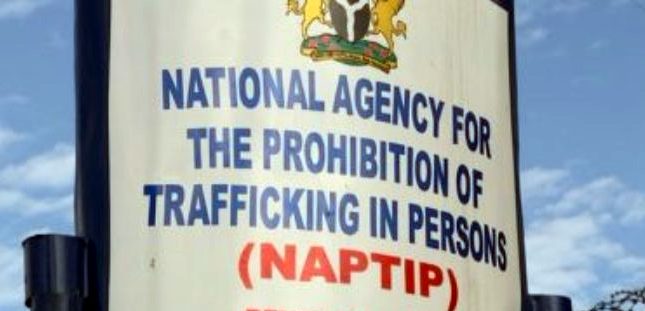No fewer than 40 security personnel, Civil Society Organisations (CSOs) and members of the Borno Task Force on Human Trafficking were on Monday subjected
By Hamza Suleiman
No fewer than 40 security personnel, Civil Society Organisations (CSOs) and members of the Borno Task Force on Human Trafficking were on Monday subjected to special training on data collection.
The five-day Capacity Building Workshop was organised by the National Agency for the Prohibition of Trafficking in Persons (NAPTIP) and the United Nations Office on Drugs and Crime (UNODC) for stakeholders in the North-east in Maiduguri.
The News Agency of Nigeria (NAN) report that the workshop which focuses on the use of harmonised data collection tools, is part of the implementation of the National Action Plan (NAP) on Human Trafficking in Nigeria, 2022-2026.
NAN reports that the project titled “From Policy to Action” is jointly funded by the Swiss Government and co-implemented by UNODC and NAPTIP.
The Director-General of NAPTIP, Binta Bello, highlighted the critical role of data in combating human trafficking.
Bello, was represented by the Assistant Director of Research, Programme and Development, Mr Olatunji Rasheed, said that the training underscored the importance of accurate and reliable data collection as the bedrock of effective anti-trafficking programming.
“With reliable data, we can track trends, allocate resources efficiently, and develop evidence-based strategies to combat human trafficking,” the director general said.
She said that NAPTIP had recently reviewed its data collection tools to include critical components, such as disability indicators, to promote inclusive reporting.
Bello said that the tools had been standardised to ensure accessibility and effectiveness across federal platforms, allowing multiple agencies to report under the NAP.
She, however, urged participants to actively engage in the training, emphasising their roles in data collection, repository management, and timely reporting to the National Reporting Hub.
Also speaking, Cheikh Toure, UNODC’s
Country Representative, commended the NAPTIP’s relentless efforts in combating human trafficking.
Toure was represented by Ms Ifeoma Kenebi, the Project Officer, Trafficking in Persons and Smuggling of Migrants Unit UNODC in Nigeria.
“UNODC remains a long-standing partner in helping Nigeria address transnational organised crime, including human trafficking.
“The development and refinement of the National Action Plan (NAP) reporting framework and harmonised data tools are crucial to achieving our shared goals,” the country representative said.
Toure, however, acknowledged the Swiss Government’s invaluable support and urged participants to focus on understanding the reporting tools across the five pillars of the NAP.
“The workshop will cover the technical aspects of the reporting tools, ethical considerations, and best practices for data sharing and communication among stakeholders.
“Participants are expected to step down the training to other members of their organizations to ensure uniformity in reporting.
“The training has already been conducted in the North Central, North West, and South South geopolitical zones, with positive outcomes. The North East session is expected to yield similar results, contributing to the nationwide effort to eradicate human trafficking,”he said.
He encouraged the participants to remain focused and actively participate to maximize the impact of the training.
She added that the workshop will also feature presentations by seasoned experts, group activities, and practical sessions to enhance participants’ skills and understanding of the harmonized tools.
In his remarks, The Zonal Commander of NAPTIP, Mohammed Barde, emphasized the critical role of accurate reporting in addressing human trafficking, which continues to threaten the safety and dignity of vulnerable citizens.
Barde said that the five-day training aims to strengthen the capacity of NAPTIP officers, civil society organizations, and state task force members to track, monitor, and respond to trafficking cases effectively.
He noted that the tools, developed through consultations with stakeholders, will enhance national response mechanisms, improve coordination among agencies, and better protect victims’ rights.
He said that the training would cover technical aspects of the reporting tools, ethical considerations, and best practices for data sharing and communication.
Barde urged participants to approach the training with dedication and a commitment to eliminating human trafficking in Nigeria.
Earlier, Abdulganiyu Abubakar, the National President, Network Against Trafficking, Abuse, and Labour (NACTAL), commended the efforts of stakeholders and participants in addressing the scourge of human trafficking in Nigeria.
The president, who was represented by the Borno Coordinator, Umar Gambo, said the fight against human trafficking required collective action.
Abubakar said that the tools were designed to enhance national data collection systems, strengthen inter -agency coordination, and improve overall response mechanisms.
He said the initiative would lead to more evidence-based interventions and the dismantling of human trafficking networks as well as protecting the rights of the victims.
Abubakar, however, stressed the need for the stakeholders to strengthened their partnership toward ensuring a holistic approach in combating human trafficking.
(NAN)




